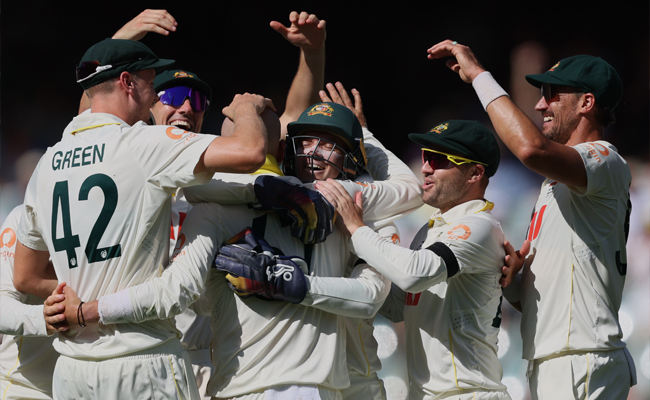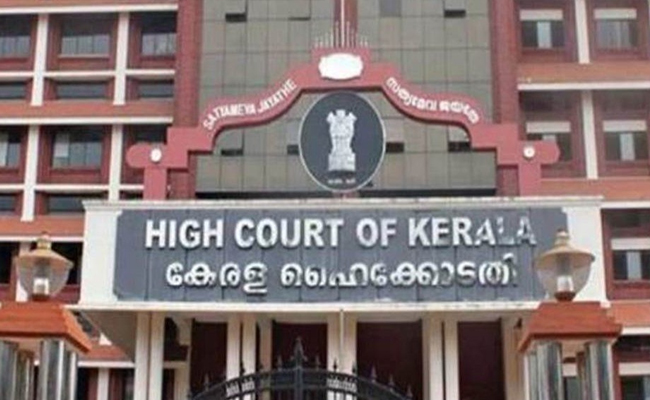London, Jan 30 (PTI): Two types of extremism with their origins in the Indian subcontinent -- pro-Khalistan extremism and Hindu nationalist extremism -- have been flagged as threats to “understand” in a leaked report into the UK government’s ‘Extremism Review’.
‘Extremely Confused: The government’s new counter-extremism review revealed’, authored by Andrew Gilligan and Dr Paul Scott for the Policy Exchange think tank released earlier this week, claims 'Hindu nationalist extremism' has found a mention in such a review for the first time.
UK Home Office Security Minister Dan Jarvis told the House of Commons on Tuesday that it was “not entirely clear which version of the report was leaked” and stressed that its claims did not represent government policy.
It follows Home Secretary Yvette Cooper ordering a ‘Rapid Analytical Sprint’ last August to determine the Labour government’s policy on extremism.
As per the leaked report, the longest section is labelled “Understand” and lists nine types of extremism in the following order – “Islamist, extreme right-wing, extreme misogyny, pro-Khalistan extremism, Hindu nationalist extremism, environmental extremism, Left wing, anarchist and single-issue extremism (LASI), violence fascination and conspiracy theories”.
“Pages 17-18 of ‘Understand’ are devoted to two types of extremism which have their origins in the Indian subcontinent – what is described as pro-Khalistan extremism and Hindu nationalist extremism. With regards to the former, the report offers the caveat that support for a Sikh state of Khalistan is not necessarily extremist; the problem is when this outlook leads to the advocacy of violence in support of that cause,” reads the Policy Exchange report.
“That is a logical position for the UK government to take. However much more controversial will be the assessment of a ‘growing portfolio of actors of concern’ within the Khalistan movement; and reference to activism which contributes to ‘the demonisation of Muslim communities, in particular about child sexual exploitation allegations’ and what are seen as conspiracy theories alleging collusion between the British and Indian Governments," it reads.
The report does however recognise that concerns exist about the Indian government’s "overseas role", including accusations of Indian involvement in "deadly violence against Sikhs in Canada and the United States".
It adds: “Hindu nationalist extremism (also referred to as Hindutva, which roughly translates as ‘Hinduness’) was not mentioned in the 2023 Independent Review of Prevent – something that with hindsight can be seen as a mistake. Given the violence which occurred in Leicester in September 2022 between Hindus and Muslims, the government is correct to place Hindu nationalist extremism under the spotlight – not least as knowledge of it is generally low.
“Equally notable here is the declaration that in Leicester ‘key voices within both Muslim and Hindu communities also played a significant role in opportunistically exploiting tensions and inciting hate among the local communities’.”
The Opposition Conservative Party raised the leaked report's findings in Parliament, with Shadow Home Secretary Chris Philp questioning the government’s approach towards tackling different forms of extremism.
“As we have said repeatedly, Islamist extremism followed by far-right extremism are the biggest threats we face... Ideology, particularly Islamist extremism followed by far-right extremism, continues to be at the heart of our approach to countering extremism and terrorism,” stated Dan Jarvis, on behalf of the government.
The Home Office also reiterated that the findings of the ‘Rapid Analytical Sprint’ “have not been formally agreed by ministers” as the government considers a “wide range of potential next steps arising from that work”.
Let the Truth be known. If you read VB and like VB, please be a VB Supporter and Help us deliver the Truth to one and all.
Adelaide (AP): Australia retained the Ashes with two matches to spare after paceman Mitchell Starc took three of the last four wickets to blunt England's defiant comeback Sunday in a tense fifth-day finish to the third cricket test.
Australia started Day 5 needing four wickets to retain the Ashes, with England resuming at 6-207 and still 228 runs away from the victory target of 435 that would have required a world record to achieve.
“Feels pretty awesome,” Australia captain Pat Cummins said of the 82-run win at the Adelaide Oval. “We got it done.”
Cummins missed the first two tests while recovering from a back problem, with Steve Smith leading the team to two eight-wicket wins. Smith was ruled out of the third test about a half-hour before the toss because of vertigo.
“You can't really rush things here in Australia, it doesn't work that way,” Cummins said of the test going the distance. “It's a good old fashioned grind a lot of the time and, yeah, I love the toil from all the guys today.
“It got a little bit closer than I would have liked, but pretty happy.”
Tense Day 5
========
Starc took the only wicket in the morning session — Jamie Smith running out of patience and caught by Cummins for 60 — as England piled on 102 runs.
England's rally had narrowed the Ashes equation at lunch on the last day: Australia needed three wickets to clinch the old urn in Adelaide and England needed 126 runs to keep the five-match series alive.
No team had scored more than West Indies' 418 (in a three-wicket win over Australia in 2003) in the fourth innings to win a test.
But England skipper Ben Stokes later said he felt like his team were “on for another heist” in the morning session and was confident of achieving a record total.
With England's lower-order doggedly mounting pressure and Australia's attack missing veteran spinner Nathan Lyon, who limped off the field with an injured hamstring, the leading bowler in the series delivered for the hosts.
Starc, who was voted player of the match in Australia's eight-wicket wins in Perth and Brisbane, took the wickets of Will Jacks (47) — spectacularly caught by Marnus Labuschagne, who dived from slip in front of the wicketkeeper — and Jofra Archer (3).
That left Scott Boland to finish it off. He dismissed Josh Tongue (1) and left Brydon Carse stranded on 39 as England was all out for 352.
Player of the match
============
Australian wicketkeeper Alex Carey was voted player of the match after posting a home ground hundred in the first innings, a half-century in the second innings in a 162-run stand with Travis Head, who top-scored with 170, and completing seven dismissals for the test.
England's out of contention
=================
England captain Ben Stokes said he was happier with the resilience shown by his team this week, despite ultimately surrendering the series in 11 days.
“This is going to hurt quite a bit,” Stokes said. “Obviously that dream that we came here with is now over, which is obviously incredibly disappointing.
“But look, we've got two more (tests) to go on and that's where the focus needs to switch to now.”
Injured Lyon
=========
A day after swinging the momentum back in Australia's favor with a three-wicket burst, veteran spinner Lyon hurt his right hamstring diving to cut off a boundary in the outfield and was ruled out of the remainder of the match. He got up and clutched the back of his right leg before walking off with a trainer when England was 249-6.
Long, long drought
============
Domestic media noted Sunday that it had been 5,462 days since England last won a test match in Australia — dating back to January 2011.
Since then, the Australians have won the series Down Under 5-0, 4-0, 4-0 and are now 3-0.
Melbourne will host the Boxing Day test starting Dec. 26 and Sydney will host the fifth test in the New Year.





